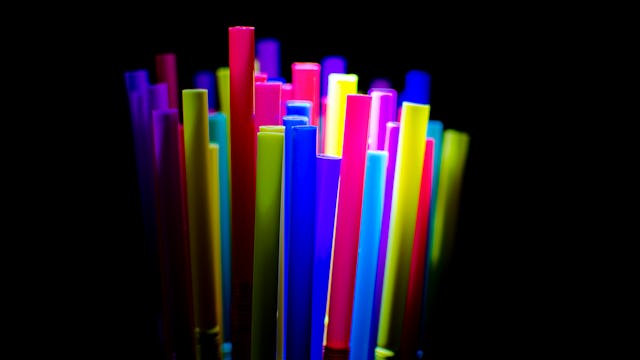Straws Aren't The Worst Offenders When It Comes To Ocean Plastic -- By A Long Shot

Straws are just distracting us from what’s actually causing a ton of ocean plastic waste
From tragic stories of marine life killed by ocean plastic pollution to corporate pledges to ditch plastic, the crusade against plastic pollution has placed a lot of focus on straws, but is it possible there’s a better use for that activism? Yes, of course there is.
Straws aren’t even in the top five worst pollutants in our oceans. Cigarette butts, food, fast food wrappers and cups, plastic bags, tissues, plastic bottles, gum wrappers, receipts and drink cans are all more negatively impactful than straws.
In a video that’s now going viral, Bloomberg questions why plastic straws are suddenly the ocean pollution pariah, when they actually account for so little of the plastic waste that’s wrecking our planet.
According to the video, there are more than 8 billion plastic straws scattered along the earth’s coastlines. And while yes, that’s a lot of preventable trash, it pales in comparison to the 8 billion metric tons of plastic waste floating in the ocean, including nearly 4 billion metric tons of fishing nets. Even amid all the headlines about plastic straws, they account for less than a percent of ocean plastic waste (0.03 percent, to be exact). Meanwhile, a whopping 46 percent of the Pacific garbage patch is made up of one thing: discarded fishing nets.
Does this mean we should all give up the fight against plastic straws? Of course not. Eliminating any kind of single-use plastic from your life is a positive step toward sustainability, and when lots of people do it on a large scale, it can have a huge impact on the planet as a whole. But even though pledging not to use plastic straws (when possible, because some people, like many with disabilities, need plastic straws) is a good step, there are just better ones we could take.
As Bloomberg points out, you can help limit fishing net waste in the oceans by knowing where your seafood comes from, and only buying from companies who use trawlers who mark their nets and other gear, meaning they’re accountable for whatever waste they leave in the ocean. Or, better yet, only eat seafood from sustainable sources, many of which don’t trawl at all, since the practice destroys ocean habitat and has a “devastating” effect on the health of our oceans, according to recent studies. If you’re not sure where to start, the Monterey Bay Aquarium regularly updates its “Seafood Watch” guide to contain the most sustainable seafood choices.
Viral campaigns are a great way to get people on board with making choices that will better our planet’s health. But we can push for choices that will have a greater impact than removing plastic straws.
This article was originally published on